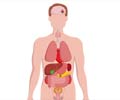A collaborative study by American researchers has revealed that changes in a gene called IKAROS can help predict a high likelihood of relapse in children with acute lymphoblastic leukemia (ALL).
Scientists behind the Children's Oncology Group (COG) study say that their findings may provide the basis for future diagnostic tests to assess the risk of treatment failure.They say that doctors should be better able to assign ALL patients to appropriate therapies by using a molecular test to identify this genetic marker in them.
ALL, a cancer of the white blood cells, is the most common childhood cancer. Currently available therapies carry with them substantial side effects, and even with treatment, only 30 percent of children who experience a relapse of ALL will survive five years.
The researchers say that determining the risk of relapse faced by an individual patient would help doctors tailor treatment intensity appropriately.
"Great progress has been made in recent years in improving the cure rate of childhood ALL. The findings of this study help us further subdivide those patients who are unlikely to be cured, and identify patients in whom different therapies should be tested," the New England Journal of Medicine quoted Dr. Stephen Hunger, chairman of the COG ALL committee and the lead COG investigator on this study, as saying.
During the study, the researchers analysed genetic data on leukemia cells obtained at diagnosis from 221 children with a high chance of relapse, who had been treated in an existing COG study.
Advertisement
The researchers said that those technologies helped them identify genetic abnormalities in leukemia cells.
Advertisement
With a view to determining whether specific genetic changes were associated with relapse, the scientists also examined a second group of 258 children with ALL who were treated at St. Jude.
"We looked across the genome in an unbiased fashion in an attempt to pull out any genes that were significantly associated with outcome. From these findings, we identified a group of genetic abnormalities that together predicted poor outcome," said Dr. Charles Mullighan, assistant member in the St. Jude Department of Pathology and the paper's first author.
The team said that the most significant association was with the deletions or changes in the IKAROS gene, mutations of which were found to identify a subgroup of patients who were treated in the COG study that had a very poor prognosis.
The prognostic significance of these genetic alterations was validated in the independent St. Jude patient group, a finding of particular importance since different types of therapies were used in these two groups of patients.
The study also examined gene expression in the leukemia cells using microarray chips, and found that leukemia cells from patients with IKAROS alterations expressed primitive, stem cell-like genes, suggesting that the cells were less mature and possibly more resistant to the effects of drugs used to treat ALL.
"These findings show how detailed analysis of leukemic cells using complementary techniques can enhance our understanding of the genetic basis of leukemia," said co-author Cheryl Willman, director and CEO, University of New Mexico Cancer Research and Treatment Center.
The researchers say that their analysis indicated that identifying IKAROS alterations may be clinically useful and will complement existing diagnostic tests and measurement of minimal residual disease levels.
"In the long term, our goal is to develop effective therapeutic interventions, directed toward vulnerabilities that leukemia cells acquire as a result of the genomic abnormalities identified through the TARGET initiative," said Malcolm Smith, M.D., Ph.D., of NCI's Cancer Therapy Evaluation Program.
Source-ANI
PRI/SK













